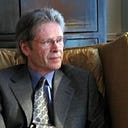Creating Beauty
Waking Up from Our Dream
In Decolonizing Wealth, Dana Arviso, executive director of the Potlatch Fund and member of the Navajo tribe, tells author Edgar Villanueva about a perspective from Native communities in the Cheyenne River territory when she asked them about poverty reduction strategies:
“They told me they don’t have a word for poverty,” she said. “The closest thing that they had as an explanation for poverty was ‘to be without family.’” Which is basically unheard of. “They were saying it was a foreign concept to them that someone could be just so isolated and so without any sort of a safety net or a family or a sense of kinship that they would be suffering from poverty” (p. 151).
It’s time for us to let go of narratives like Maslow’s Hierarchy of Needs and the American Dream, which leave out any mention of participating in community well-being and tell a story only of individual flourishing. This profound distortion of reality leaves us living in illusion, needing to wake up. As Daniel Suelo says in The Man Who Quit Money, “there’s not a creature or even a particle in the universe that’s self-sufficient. We’re all dependent on everybody else” (p. 133).
— Teju Ravilochan
*
“Feminism has driven women to their animus…Imitating men, behaving in brutal, in animus-like ways because they have no self-assurance within their own femininity.
Jung was really struck when he was in Southern India, which is matriarchal…
The women are beautiful, full of dignity going around in their saris…”
— Marie-Louise von Franz
*
There is a way of waiting, when we are writing, for the right word to come of itself at the end of our pen, while we merely reject all inadequate words.”
— Simone Weil
In artistic creation, a receptive state of mind is more helpful than a mind full of knowledge and logic. Waiting for what comes on its own volition and schedule, that comes when it senses a calm, empty mental space where it will be welcomed, is more productive than forceful planning. I think of that relaxed, passive state as mental fecundity, able to conceive and give birth to something new, and in that sense it’s feminine in character.
Our culture is not built on trust of hidden processes and relationships. Creativity has a kind of mystique to those of us who are educated by the masculine ethos of heroic forces overwhelming the unruly chaos of irrational and resistant nature.
I would like to suggest that natural forces are more cooperative, relational and harmonious than we imagine. I think we project our own sense of isolation and threat onto the world around us, creating the experience of separation we fear. The reasons we do this beg to be re-examined, from top to bottom. Our blindness is creating our ills, from poverty to the destruction of the web of life.
The mind that sees beauty will value it. Beauty is in interrelationships, which is fundamental to all life. We are all family. All beings are related. Nothing actually can exist in isolation. The logic of this is obvious, but conceiving it as an idea is different from seeing it intuitively from the heart. The impulse to protect and care for the God-given beauty of the world we are part of comes less from duty and belief than simple love and its perception of the miraculous beauty of Creation.
Heartfelt conviction differs from adopted ideas in its ability to move us to action. If we let the travesties and common crimes of our culture pass without raising an objection or shedding a tear, we’re probably not living from our hearts. We’re probably in the grip of a patriarchy and it’s rational excuses for “how things are.”
The artist’s mind interests me because it’s a departure from the mindset of the dominant culture. My training in the world of art solidified my relation to beauty and to creation, both mine and God’s, to use that overused and misunderstood word. I would like to see a wider appreciation for beauty, for the creative mind and for how everything is intimately related to everything else. If that’s called matriarchy, so be it.
